Is It Safe to Eat Honeycomb While Pregnant
When it comes to pregnancy, it's just as important to know what not to eat as it is to know what to eat. While there are plenty of foods that are ideal to consume while you're expecting, there are also many foods you should avoid if you have a little one on the way. And while you're currently spending most of your time at home, you want to make sure you're doing all you can to stay healthy.
An interesting example? There has actually been ongoing queries about whether or not pregnant women can consume honey since it's forbidden for infants to do so.
"An infant consuming honey could cause botulism if the honey is contaminated with Clostridium botulinum. This bacteria could lead to infant botulism," nutritionist Amy Tao, MS, of Based Wellness tell us, in reference to a 2010 study.
However, it is safe for pregnant women to eat honey, as adults are less likely to contract botulism because they have a more mature gut microbiome, according to Tao.
"Because of the molecular weight of the bacteria, it is highly unlikely that it would cross the placenta and create an issue for the fetus," she says. "Pregnant women who do not have any pre-existing conditions or complications with their gastrointestinal tract need not avoid honey."
OK, so honey is marked as safe for mothers-to-be, but there are just some foods that simply aren't. To help you ladies out, Tao provided us a list of the worst foods for pregnant women and shared important tips for staying sanitary and safe in the kitchen, too. She suggests keeping a permanent marker on hand to label when you open jars to avoid consuming expired foods, checking that all foods—especially meats and fish—are cooked to a safe temperature with a food thermometer, and make sure you're always washing hands, utensils, and surfaces with hot soapy water.
Now, here are the foods to avoid when you're pregnant.
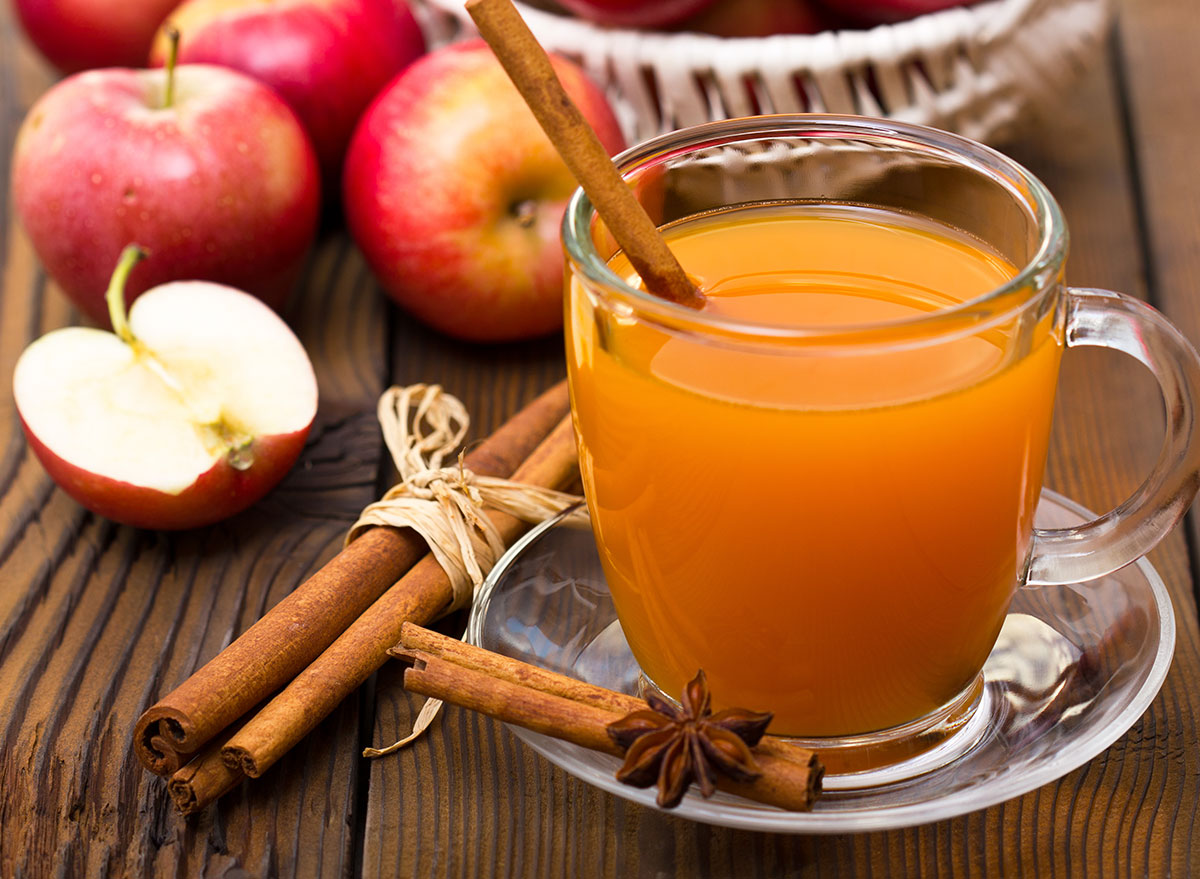
Fruits and vegetables that are turned into freshly-squeezed juices—think apple cider and orange juice—are a big no-no due to the potential of bacteria like E. coli being present. That said, always look for the term "pasteurized" on a label before drinking a fruit or veggie juice.
"The US Department of Health & Human Services also suggests bringing juice to a boil for one minute before drinking it," Tao says. "Rather than drinking juice that contains sugar without the fiber, opt to sip on some broth, water, or tea, since staying hydrated during pregnancy is very important."
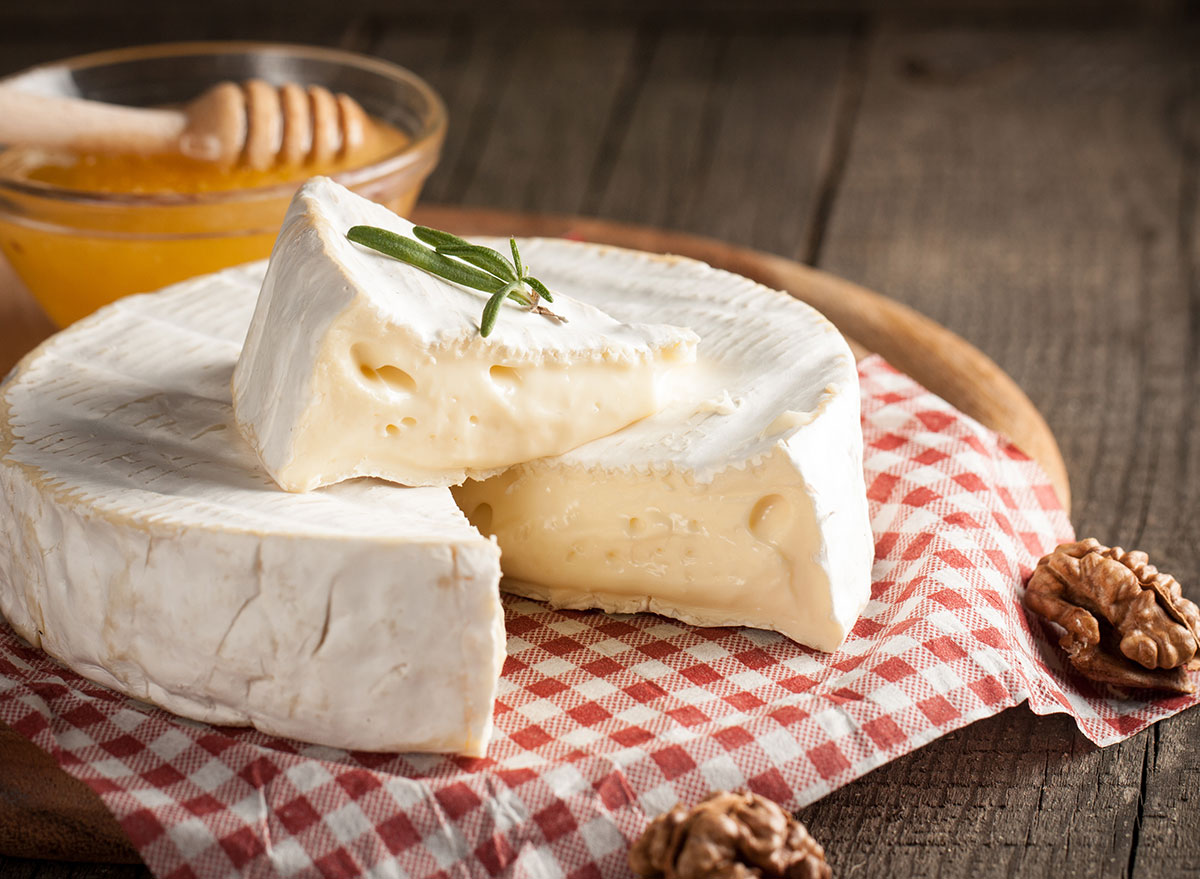
When it comes to dairy in general, especially milk and soft cheeses like fresh mozzarella, feta, and blue cheese, it's important to check labels for pasteurization even though many states have strict laws on selling raw milk. Pasteurization is a process where products—in this case, milk—are treated with heat to kill harmful bacteria.
"This process not only creates a safer product, but it also helps to extend the shelf life," Tao says. "Milk that is not pasteurized and cheese produced with milk that is not pasteurized can contain harmful bacteria like E. coli, Listeria, and Salmonella. When this milk is used to make soft cheeses, they can also contain harmful bacteria."
RELATED: Easy, healthy, 350-calorie recipe ideas you can make at home.
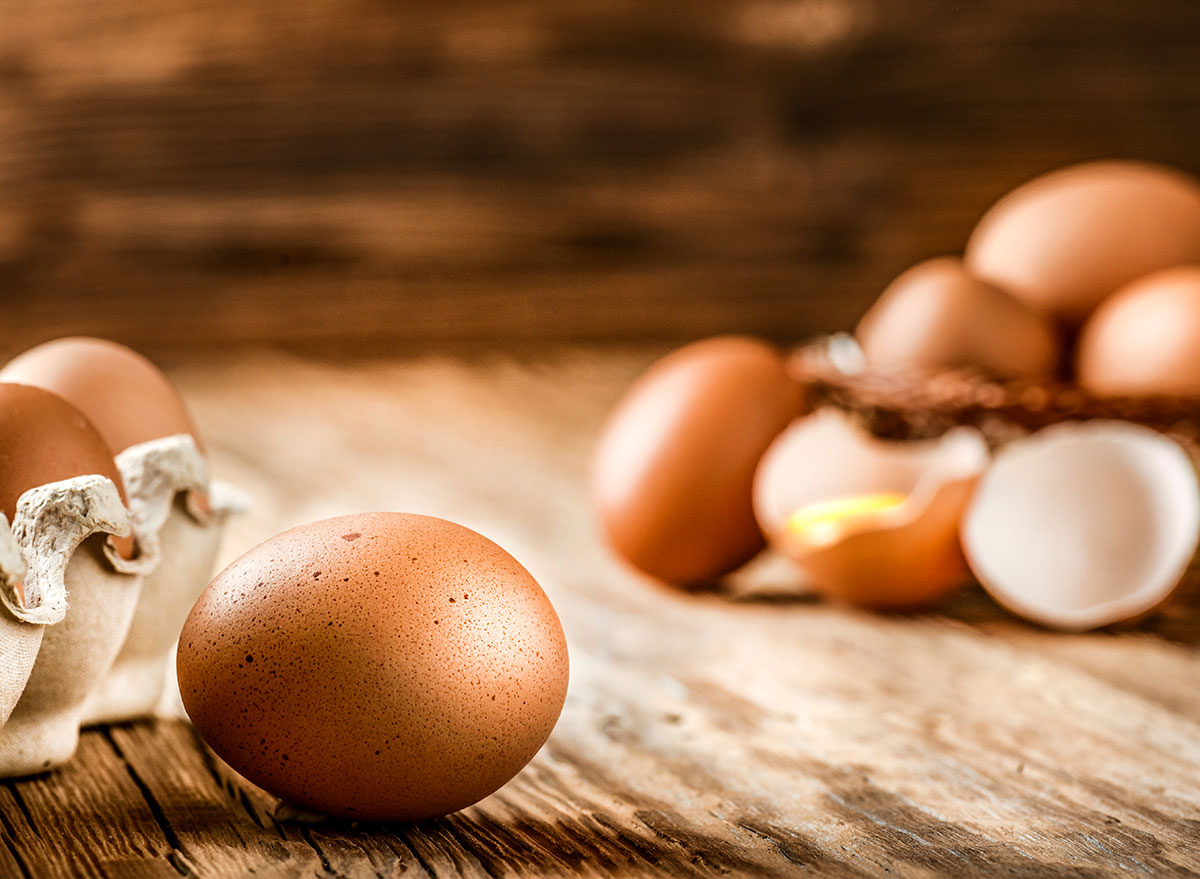
Eggs are safe to eat if they are cooked, but it's crucial to avoid raw or undercooked eggs, which oftentimes are included in some sauces and raw dough.
"Raw and undercooked eggs could contain Salmonella," Tao says. "Egg whites and yolks should be cooked through and not left runny to kill bacteria. Dishes using eggs need to be cooked to 160 degrees Fahrenheit."
To ensure that eggs are pasteurized, perhaps purchase liquid eggs (you know, the ones that come in a carton!), but always check the label first.
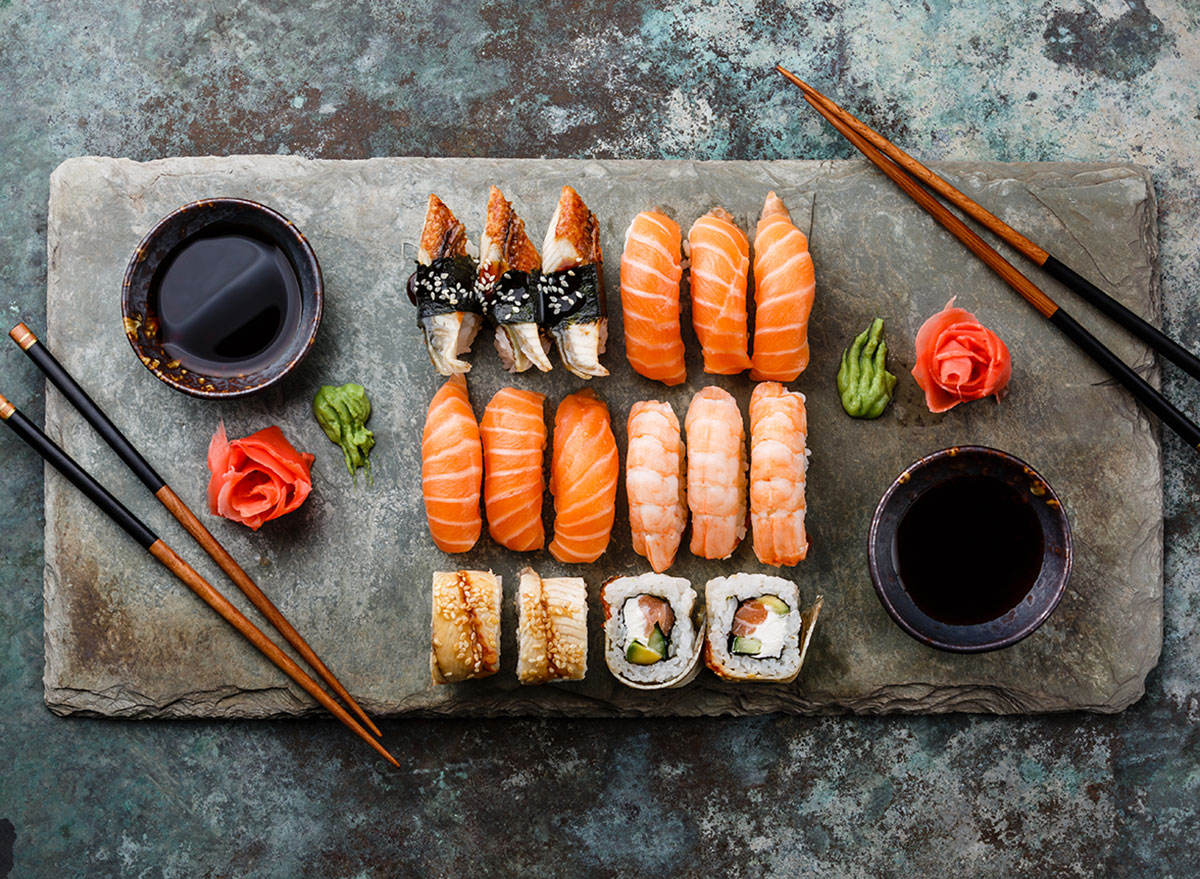
One of the biggest food groups to avoid during pregnancy is raw seafood. This includes oysters, ceviche, and seared tuna, as well as smoked seafood such as salmon, mackerel, and cod.
Shellfish, though, is more likely to cause illness than finned fish, according to a 2010 study. Regardless, Tao says that both types of seafood should be fully cooked before consumed by a pregnant woman.
"Another option that has been proven effective at killing bacteria, which has caused some to say that consuming raw fish is safe for pregnant women, is the use of flash freezing," Tao says. "Flash freezing is a process where fish is frozen extremely quickly in extremely low temperatures, but I would still suggest erring on the side of caution and consuming only cooked fish as there can still be issues with bacteria during the defrosting process."
When it comes to seafood, there are certain fish that should be avoided both raw and cooked due to high mercury levels. While pregnant, the American Pregnancy Association suggests avoiding tilefish from the Gulf of Mexico, swordfish, shark, and king mackerel. Let's break this down even more, shall we?
Can pregnant women eat tuna?
You may be craving a salty and delicious tuna sandwich, but are you allowed to eat it? Well, whether or not pregnant women can consume tuna has been an ongoing debate for many years. Tao suggests that pregnant women should still adhere to the guidelines of seafood servings per week and be mindful of the variety they are eating if they choose to incorporate tuna in their diet. The American Pregnancy Association recommends two-three servings of fish per week for pregnant women.
"Albacore tuna is a larger tuna and therefore this variety tends to contain more mercury than a smaller variety like skipjack tuna," Tao says. "In addition, choosing a canned brand that tests for mercury levels in tuna populations, like Wild Planet Foods, could be beneficial. When not eating canned tuna, pregnant women need to avoid seared tuna and only consume tuna that is cooked all the way through."
Can pregnant women eat sushi?
If you develop a craving for sushi, be sure to stick with the cooked options such as shrimp tempura, California roll, or vegetable rolls. Stay far away from raw fish options, as the traditional raw fish combos are a definite no-go due potential parasite contamination.
"It is not uncommon for raw fish to contain parasites. Should a pregnant woman consume raw fish with parasites, she would be exposed to complications that would be more difficult to treat because of the pregnancy," Tao says. "Medication options would be more limited and the stress of contracting an illness would also be a lot for a pregnant woman to deal with."
Can pregnant women eat salmon?
Cooked salmon is safe during pregnancy, and it should be consumed if possible. That's because salmon is both rich in omega-3 fatty acids and low in mercury.
"Omega-3 fatty acids are important in fetal development," Tao says, in reference to a 2008 study. "When ordering salmon at a restaurant or cooking it at home, make sure that the salmon is cooked well, or until the internal temperature is at least 145 degrees Fahrenheit."
While cooked salmon is safe and nutritious for pregnant women, smoked salmon, known as lox (from the refrigerator section) should still be avoided.
Can pregnant women eat shrimp?
Still following the rule of two-three servings of seafood per week, shrimp is a safe choice for pregnant women, when cooked of course. It's low in fat, high in protein, and contains healthy vitamins and minerals including omega-3 and omega-6 fatty acids, which are essential during pregnancy.
"While shrimp does contain some cholesterol and cholesterol levels are typically heightened during pregnancy, consuming shrimp is still safe," Tao says. "The omega-3 fatty acids in the shrimp may actually help lower levels of bad cholesterol (LDL) and increase levels of good cholesterol (HDL), per a 2011 study."
Can pregnant women eat crab?
Like shrimp, crab is rather nutritious as it is high in protein, low in fat, and contains beneficial vitamins and minerals.
"There is on-going debate about the impact of dietary cholesterol on blood serum cholesterol levels," Tao says. "While pregnant women have higher levels of cholesterol and crab does contain cholesterol, crab can be eaten by pregnant women as part of a healthy diet that is low in saturated fat and high in vegetables and fiber."
It's additionally important to consider that crab does contain high levels of sodium whether or not it is being prepared or cooked using salt.
If you choose to eat crab, Tao recommends eating it with vegetables opposed to melted butter loaded with sodium. "Consider a drizzle of herb-infused olive oil and some lemon juice," she says. "If you can't get away from the butter, consider a blend of olive oil and melted butter."
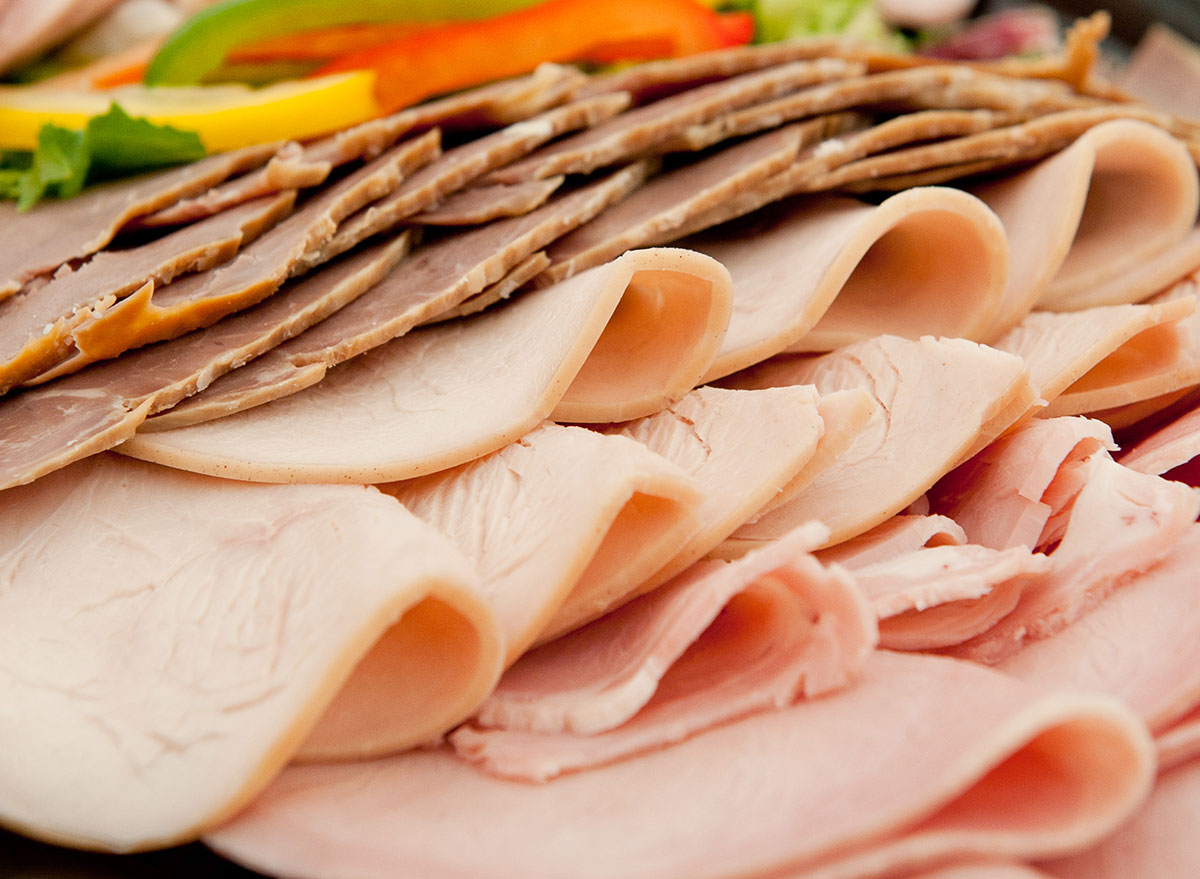
Though a cold cut sandwich may be one of your cravings, staying away from ham, turkey, roast beef, bologna, and other processed deli meats as well as prepared salads like seafood and chicken salad is ideal due to the risk of listeriosis.
Per the CDC, pregnant women are at an increased risk to develop an infection from Listeria when compared to the average person.
"If a pregnant woman contracts Listeria, it can not only be passed to the fetus, but it can cause serious complications with the pregnancy and lead to things like early labor or miscarriage," Tao says in reference to a 2010 study.
We know what else you might be thinking: so can pregnant women eat hot dogs?
Even though hot dogs are "pre-cooked," they need to be cooked through to 165 degrees Fahrenheit or else there's a risk of a pregnant woman being exposed to listeria, too. In addition to potentially carrying listeria, hot dogs just aren't the healthiest choice.
"While a hot dog that is heated adequately may be safe for pregnant women to eat, hot dogs are typically high in saturated fat, sodium, and many contain preservatives and added sweeteners like corn syrup," Tao says.
In case you were wondering, hot dogs are on our list of the 100 Unhealthiest Foods On the Planet!
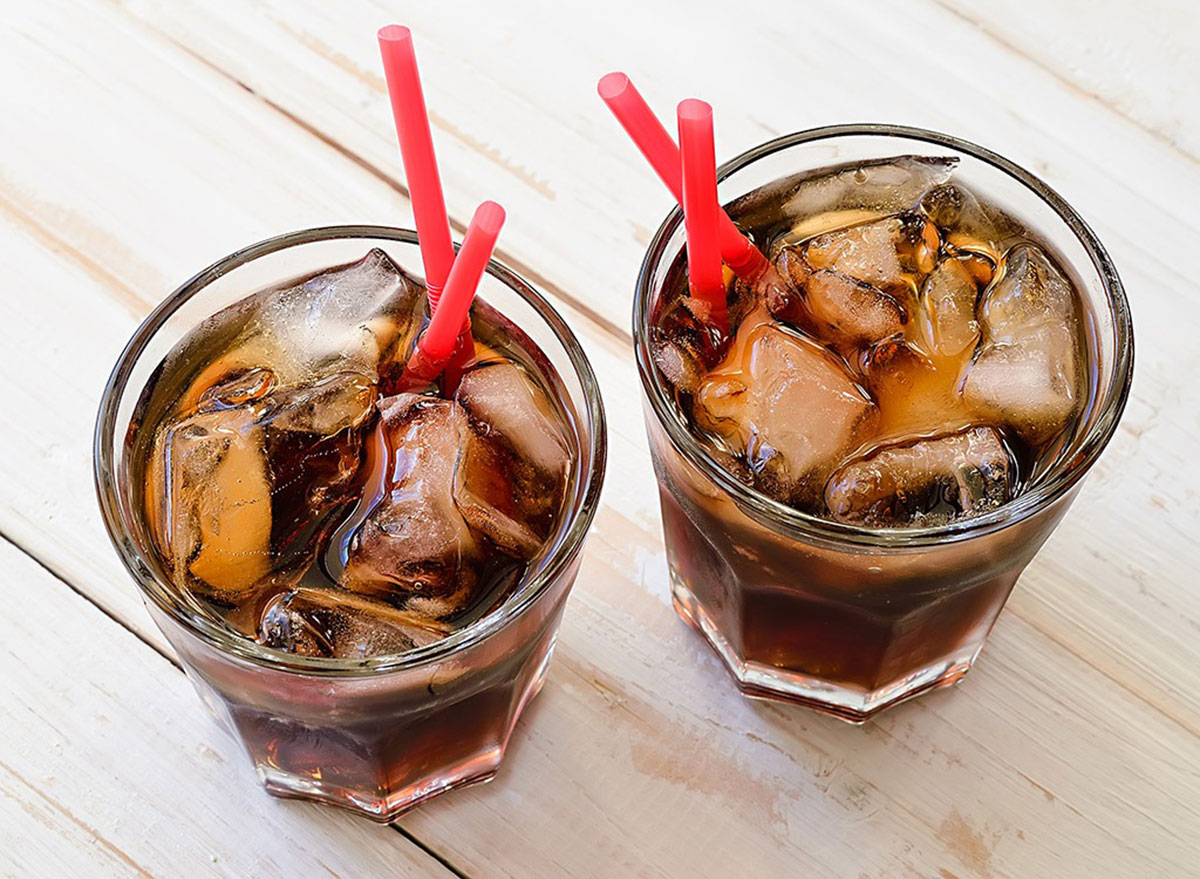
While pregnant, it's best to limit your intake of foods with added sugars, which oftentimes include candy, cakes, cookies, pies, and beverages such as soda, juices, and energy drinks. Consumption of too much added sugars during pregnancy can increase a pregnant woman's risk for gestational diabetes.
"Additionally, in a study analyzing data from mother and child pairs, a link between mothers who consumed diets high in sugar during pregnancy and low childhood cognitive function was shown," Tao says.
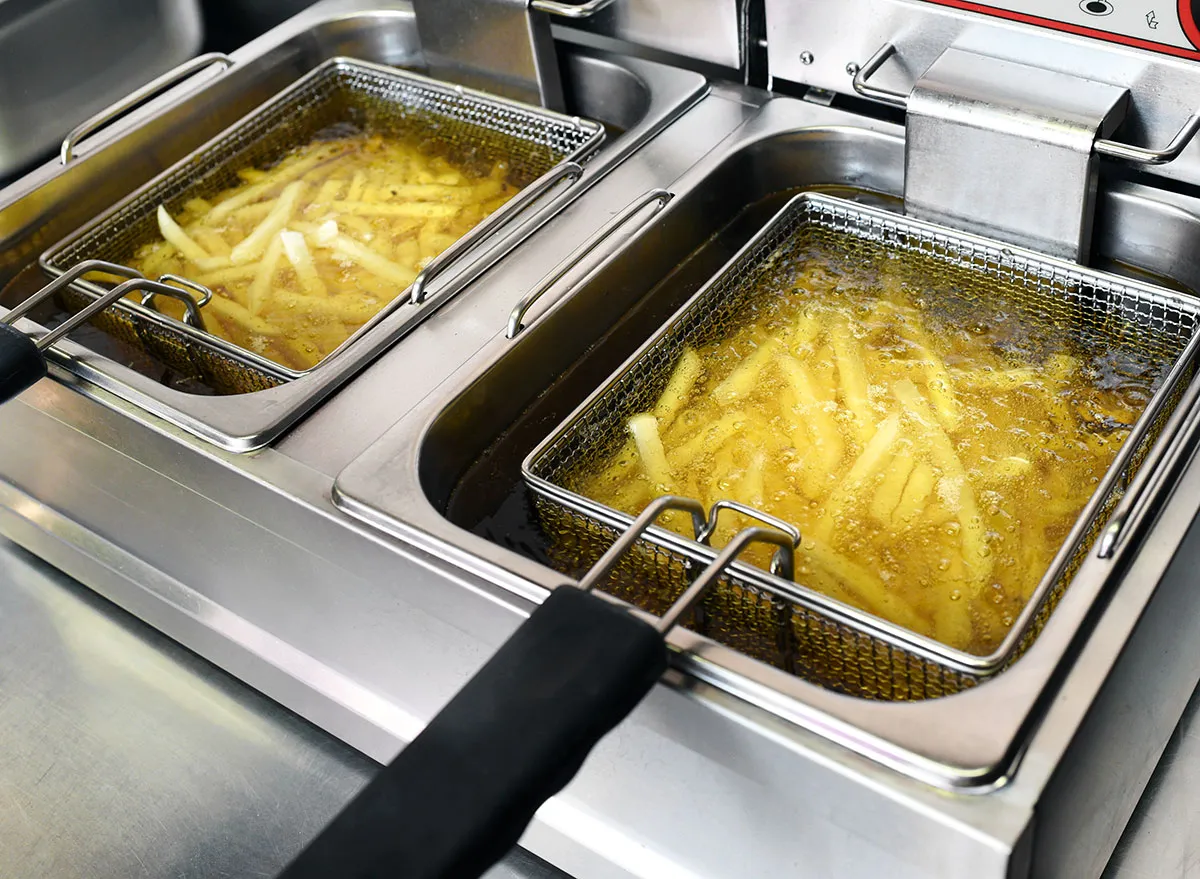
Pregnant mothers should reduce consumption of foods that are high in saturated fat, including fried foods, butter, cheese, baked goods, and meats that contain a lot of fat like beef or pork. Healthier fats should be opted for instead.
"Studies have shown that obesity and a maternal diet high in fat during gestation can lead to the development of unfavorable cardiac health for their baby," Tao says. "Diets high in saturated fat lead to an increased chance of being obese. Obesity can lead to a lot of complications for a woman during pregnancy or even while trying to get pregnant."
And now that you're aware of the foods to avoid when you're pregnant, check out our guide of the best-ever foods to eat during pregnancy.
Is It Safe to Eat Honeycomb While Pregnant
Source: https://www.eatthis.com/foods-avoid-pregnant/